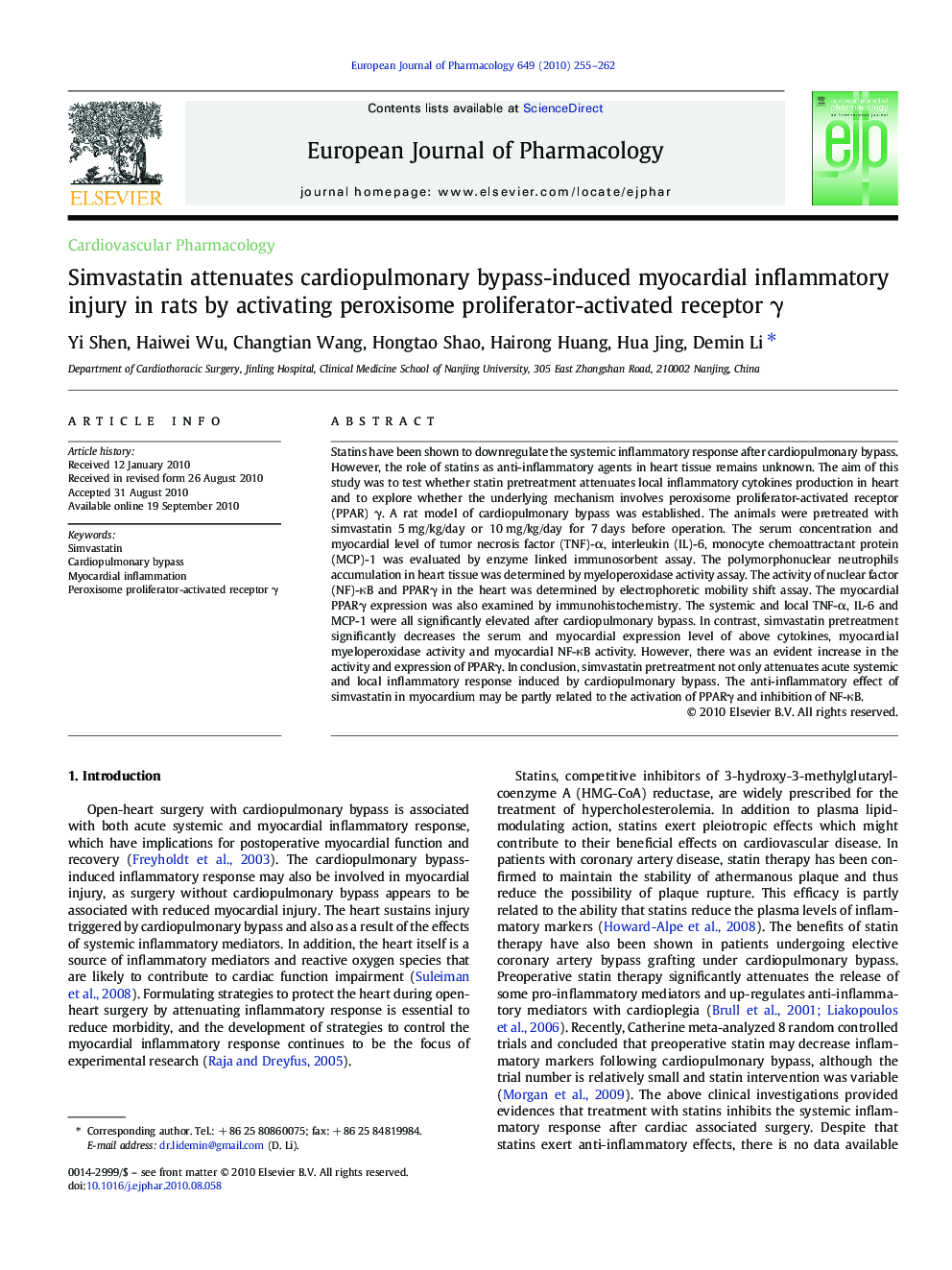| Article ID | Journal | Published Year | Pages | File Type |
|---|---|---|---|---|
| 2533158 | European Journal of Pharmacology | 2010 | 8 Pages |
Statins have been shown to downregulate the systemic inflammatory response after cardiopulmonary bypass. However, the role of statins as anti-inflammatory agents in heart tissue remains unknown. The aim of this study was to test whether statin pretreatment attenuates local inflammatory cytokines production in heart and to explore whether the underlying mechanism involves peroxisome proliferator-activated receptor (PPAR) γ. A rat model of cardiopulmonary bypass was established. The animals were pretreated with simvastatin 5 mg/kg/day or 10 mg/kg/day for 7 days before operation. The serum concentration and myocardial level of tumor necrosis factor (TNF)-α, interleukin (IL)-6, monocyte chemoattractant protein (MCP)-1 was evaluated by enzyme linked immunosorbent assay. The polymorphonuclear neutrophils accumulation in heart tissue was determined by myeloperoxidase activity assay. The activity of nuclear factor (NF)-κB and PPARγ in the heart was determined by electrophoretic mobility shift assay. The myocardial PPARγ expression was also examined by immunohistochemistry. The systemic and local TNF-α, IL-6 and MCP-1 were all significantly elevated after cardiopulmonary bypass. In contrast, simvastatin pretreatment significantly decreases the serum and myocardial expression level of above cytokines, myocardial myeloperoxidase activity and myocardial NF-κB activity. However, there was an evident increase in the activity and expression of PPARγ. In conclusion, simvastatin pretreatment not only attenuates acute systemic and local inflammatory response induced by cardiopulmonary bypass. The anti-inflammatory effect of simvastatin in myocardium may be partly related to the activation of PPARγ and inhibition of NF-κB.
